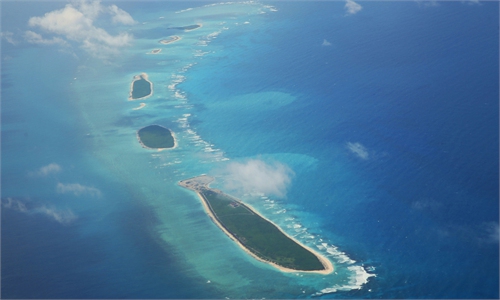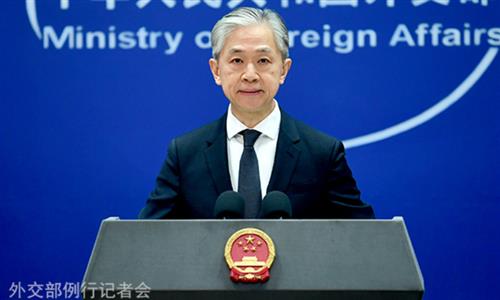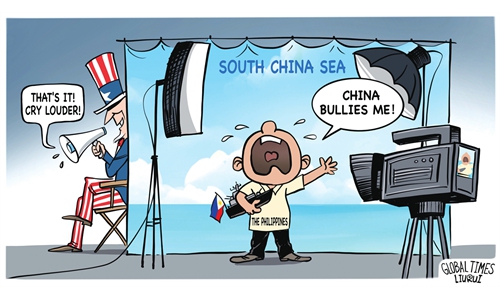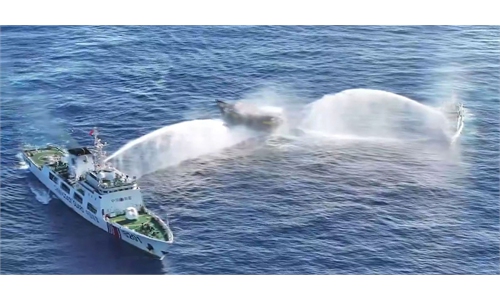Any tactic infringing on China’s rights and interests in its jurisdictional waters by the Philippines doomed to be futile: China Coast Guard
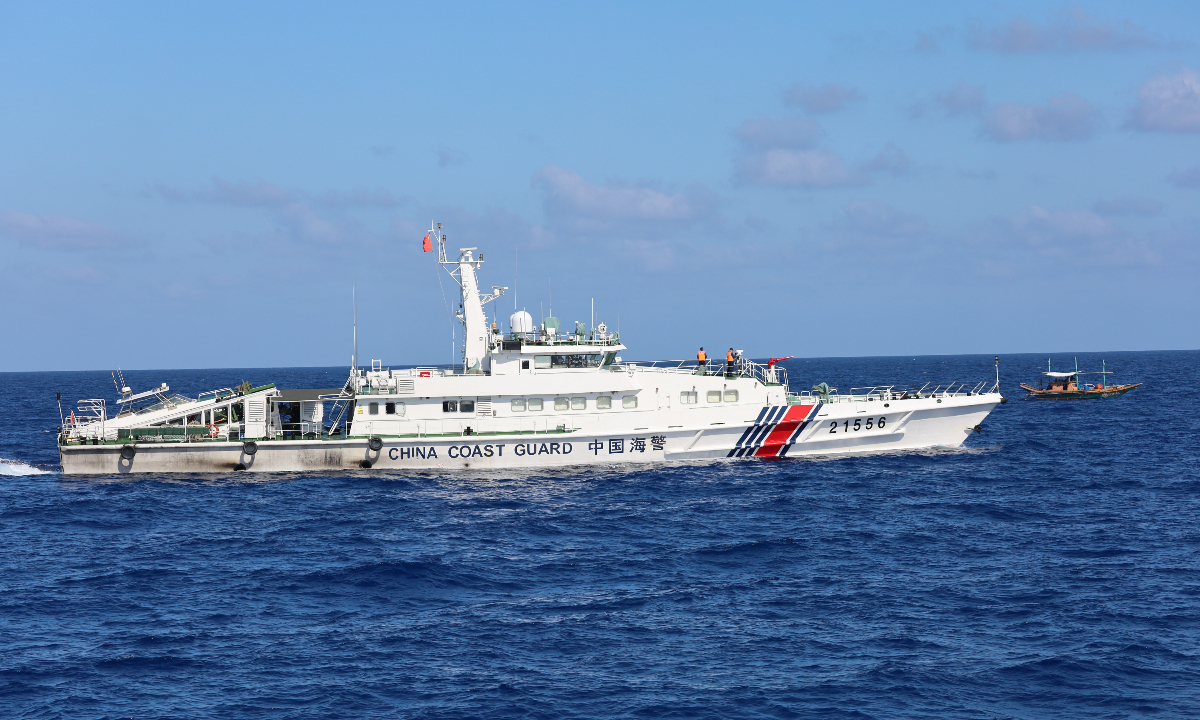
Photo: China Coast Guard
The Philippines organized multiple vessels to conduct illegal activities in the waters adjacent to China’s Houteng Jiao on Thursday. The CCG dealt with the situation in accordance with the laws and regulations, conducting on-site operations in a professional and standardized manner, CCG spokesperson Gan Yu said in a statement released on Saturday.
China indisputably holds sovereignty over the Nansha islands, including Houteng Jiao, and their adjacent waters, while Philippine vessels, under the pretext of “protecting its fishermen,” engaged in illegal provocations and intrusions, and orchestrated media hypes to mislead the public, continuously disrupting the stability of the South China Sea, Gan said.
China warns the Philippines that any tactic infringing on China’s rights is doomed to be futile and the CCG will continue to regularly enforce the law to safeguard rights and interests in China’s jurisdictional waters, resolutely defend its territorial sovereignty and maritime rights and interests, Gan noted.
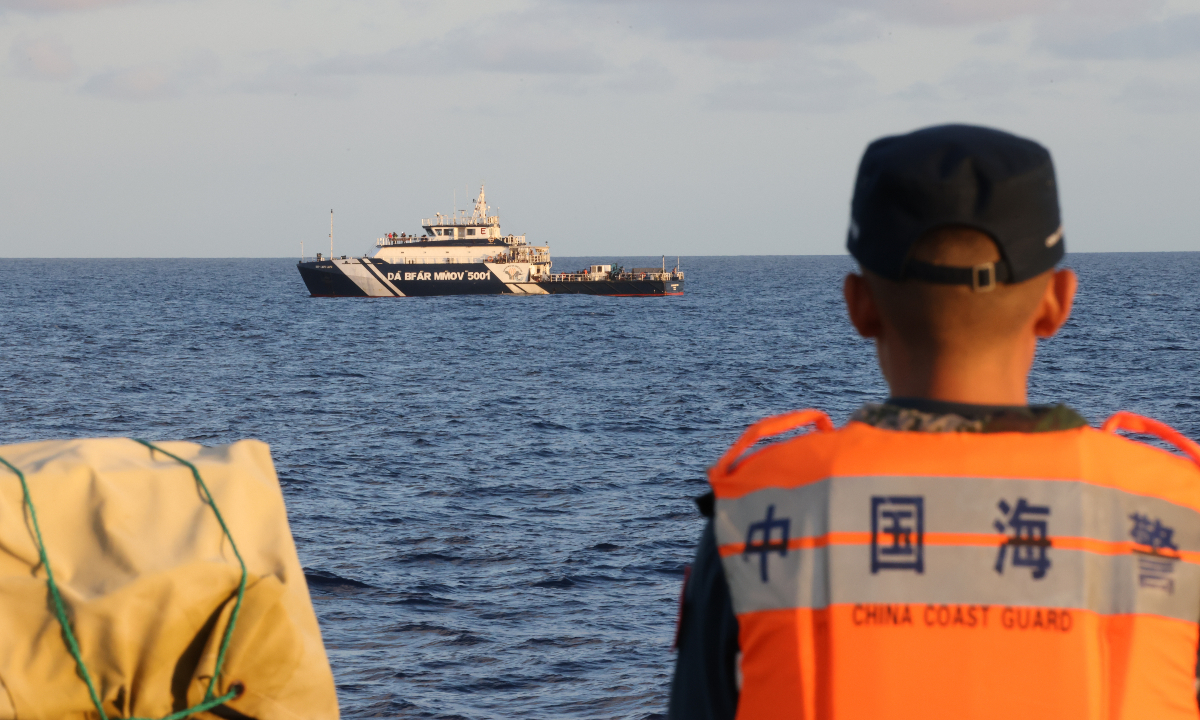
Photo: China Coast Guard
Philippine Coast Guard (PCG) spokesperson Commodore Jay Tarriela claimed on his X account on Saturday that two CCG ships “harassed” Filipino fishermen supporting PCG and Bureau of Fisheries and Aquatic Resources vessels on a mission to drop floating aggregate devices, also known as payao, in the area.
Yang Xiao, deputy director of the Institute of Maritime Strategy Studies at China Institutes of Contemporary International Relations, told the Global Times on Saturday that the payao is a kind of floating artificial reef or fish attracting device.
The device is a navigational hazard particularly for smaller sized vessels traveling at night and without radar. It is of potential danger in terms of collision and damage to vessels en route, according to Yang.
Besides, such a fishing attracting device harms the sustainable development of fisheries. It presents issues of overfishing and can destroy coral reefs and the ecological environment. Hence, some environmental organizations have called for strict management of using the device and advocated that people should minimize using it, Yang said.
Since the device can cause so many problems, the CCG law enforcement is reasonable, legal and professional, Yang noted.
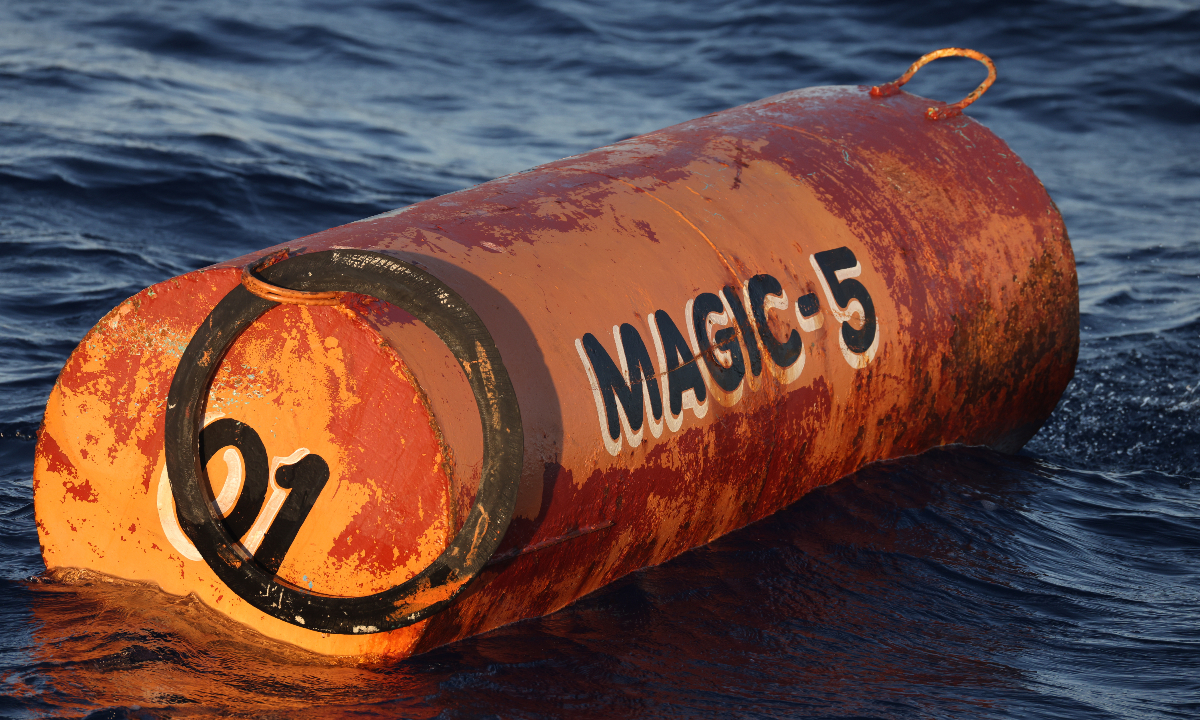
Photo: China Coast Guard
In addition, video footage that the Global Times exclusively obtained from the CCG shows that this action conducted by the Philippine side is by no means a simple fishing activity. The scale of the vessels they deployed, the number of personnel involved, and the involvement of external forces all reveal that this is a deliberate “intrusion” orchestrated by the Philippines in the name of “protecting fisheries.”
The Global Times learned that 22 Philippine fishing vessels participated in this so-called fishery protection operation conducted by the Philippines.
Apart from Houteng Jiao, the Filipino fishermen once also deployed the fish attracting device in the waters adjacent to China’s Liyue Tan (also known as Reed Bank), the Huangyan Dao (also known as Huangyan Island) and Tiexian Jiao (also known as Tiexian Reef).
Some insiders told the Global Times that the latest deployment of large-scale Philippine fishing vessels by the Bureau of Fisheries and Aquatic Resources and the PCG in the waters adjacent to China’s Houteng Jiao in the Nansha Islands to set up such devices is a typical act of tactic infringement on China’s rights under the guise of protecting Filipino fishermen’s rights.
Video footage that the Global Times obtained from the CCG also shows that during this illegal action, the government vessels deployed by the Philippine side carried a large number of media reporters who provided on-site coverage of the Philippine side's illegal activity of dropping the fish attracting devices, which indicates a clear intention of manipulation and incitation by the Philippine side, as well as the suspicions of intentionally provoking conflicts with CCG’s normal law enforcement activities.
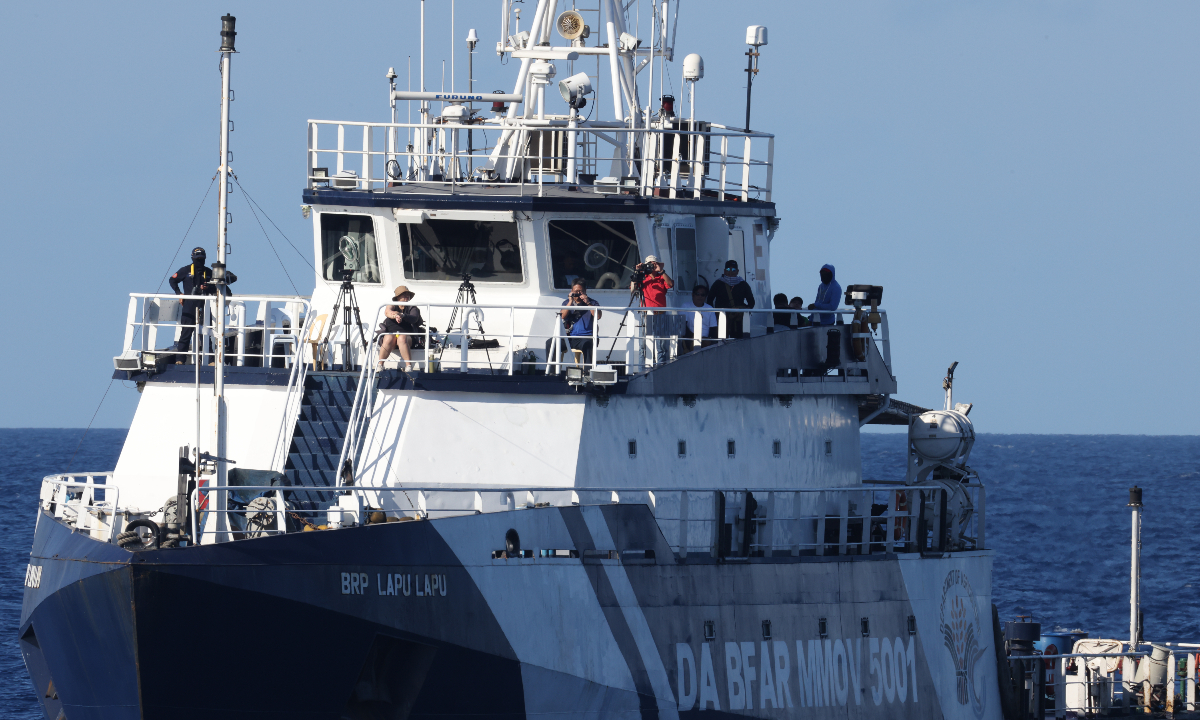
Photo: China Coast Guard
Chinese Defense Ministry spokesperson Wu Qian has said on Thursday that the Philippines' harassment and provocations are the direct cause of the recent escalation of the South China Sea issue, and China will not allow the Philippines to act willfully.
The Philippines should not abuse China's restraint or underestimate China's determination and ability to safeguard its sovereignty and territorial integrity, Chinese analysts warned.
